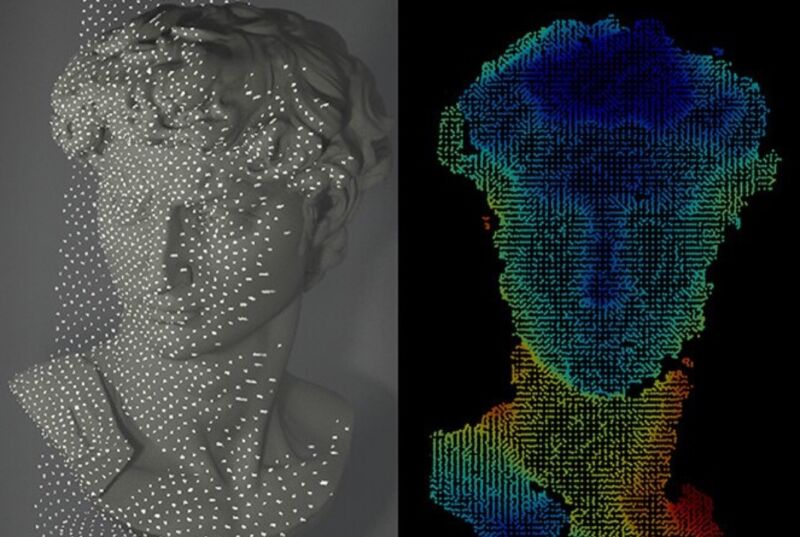
Enlarge / A new lens-free and compact system for facial recognition scans a bust of Michelangelo’s David and reconstructs the image using less power than existing 3D-surface imaging systems. (credit: W-C Hsu et al., Nano Letters, 2024)
Facial recognition is a common feature for unlocking smartphones and gaming systems, among other uses. But the technology currently relies upon bulky projectors and lenses, hindering its broader application. Scientists have now developed a new facial recognition system that employs flatter, simpler optics that also requires less energy, according to a recent paper published in the journal Nano Letters. The team tested their prototype system with a 3D replica of Michelangelo’s famous David sculpture, and found it recognized the face as well as existing smartphone facial recognition.
The current commercial 3D imaging systems in smartphones (like Apple’s iPhone) extract depth information via structured light. A dot projector uses a laser to project a pseudorandom beam pattern onto the face of the person looking at a locked screen. It does so thanks to several other built-in components: a collimator, light guide, and special lenses (known as diffractive optical elements, or DOEs) that break the laser beam apart into an array of some 32,000 infrared dots. The camera can then interpret that projected beam pattern to confirm the person’s identity.
Packing in all those optical components like lasers makes commercial dot projectors rather bulky, so it can be harder to integrate for some applications such as robotics and augmented reality, as well as the next generation of facial recognition technology. They also consume significant power. So Wen-Chen Hsu, of National Yang Ming Chiao Tung University and the Hon Hai Research Institute in Taiwan, and colleagues turned to ultrathin optical components known as metasurfaces for a potential solution. These metasurfaces can replace bulkier components for modulating light and have proven popular for depth sensors, endoscopes, tomography. and augmented reality systems, among other emerging applications.




















+ There are no comments
Add yours